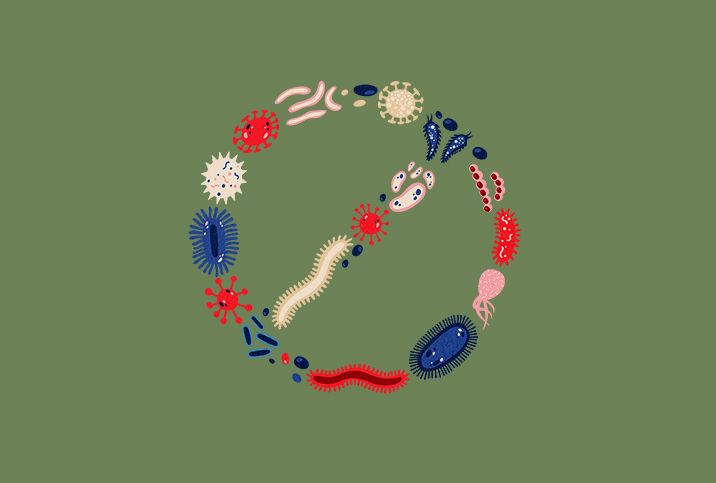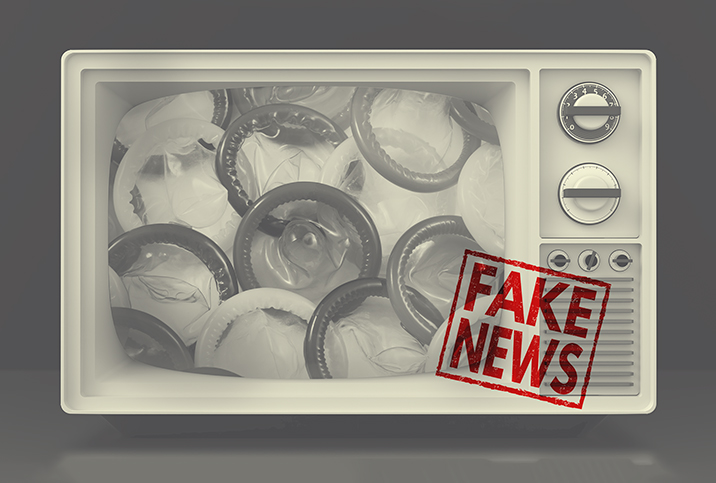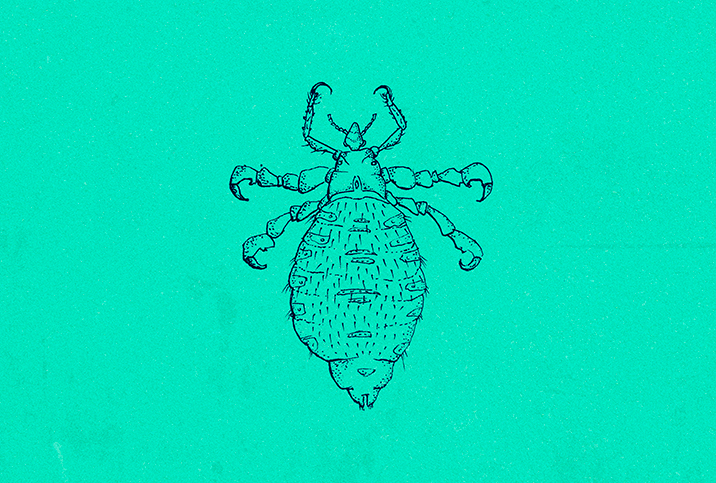Please Stop Believing People Can Be Immune to STIs

Your best protection against a sexually transmitted infection (STI) is education: knowing what they are, how you can be infected and what to do should that happen. Typically, it's misinformation that allows STIs and sexually transmitted diseases (STDs) to run rampant.
This misinformation includes urban legends and myths concerning methods to "evade" infection. Aside from responsibly using condoms, you should be cautious of any other claims about avoiding infection. You may have heard some of the following STD immunity myths, but for your safety, it's time to debunk them.
Myth: People can become immune to STIs and STDs
Whether or not it is remotely possible to become immune to an STI or STD has everything to do with what kind of infection it is. Betsy Greenleaf, D.O., a urogynecologist in New Jersey, delineated categories of sexually transmitted diseases and whether it's feasible to develop immunity against them.
"STDs fall into categories of bacteria, viruses and parasites," she said. "Bacteria and parasites typically can be contracted repeatedly—gonorrhea, chlamydia and syphilis, for example. You can build up immunity against [some of] these agents, but it will not prevent you from getting them again."
Humans can develop only partial immunity against chlamydia and syphilis, and no such immunity has been demonstrated against gonorrhea.
"Human papillomavirus [HPV] and hepatitis B are the two that you can build immunity against, but there are hundreds of strains of HPV, so just because you have immunity against one strain doesn't mean you can't catch another," Greenleaf added.
Myth: Herd immunity keeps people safe from STDs and STIs
Monte Swarup, M.D., an OB-GYN in Chandler, Arizona, explained that STDs are too diverse for the concept of herd immunity to apply. Herd immunity describes resistance to infectious disease when a certain amount of the population has preexisting immunity due to prior infection or vaccination. The threshold number of people to qualify for herd immunity varies between diseases.
"Herd immunity exists for all types of infections," he explained. "However, the organisms that cause these STDs are constantly mutating, so herd immunity for a particular strain is useless in terms of protection."
Myth: Drugs or alcohol directly cause STDs and STIs
"Drugs don't typically increase the risk of STDs by themselves," Greenleaf said. "However, erectile dysfunction medications increase an individual's likelihood of engaging in sex and, thus, spreading an STD. Alcohol and drugs additionally can lower inhibitions, increase a person's likelihood of sexual activity and decrease the immune system, adding to the risks of an STD."
However, board-certified urologist Mohit Khera, M.D., based in Houston, noted certain medications directly increase the chance of transmission.
"Corticosteroids can increase the likelihood of having an STD relapse, such as with herpes," he said.
Corticosteroids are also known as steroids. Any drug that fits within this vast category can increase the chance of STD relapses.
Myth: A person can have only one STD or STI at a time
Nora Langknecht, a sexual educator based in Los Angeles, illustrated the potential domino effect of certain STIs/STDs on the immune system.
"Some STIs and STDs, including gonorrhea and HIV, can weaken the immune system, making you more susceptible to other infections," she explained. "HIV causes immunodeficiency, meaning that this susceptibility is ongoing."
This snowball effect is why so many AIDS patients die of a secondary condition, such as pneumonia or an infection. The immune system, whether preoccupied with steroids, stress or another illness completely, is too distracted to handle the primary disease.
Myth: Medication that cleared up one STI or STD is just as efficient a second time
Even trusted medications can be rendered useless after enough reinfections of the same STD, Greenleaf said.
"Previously used antimicrobial medications will not work on a resistant infection," she explained. "These antibiotics don't cause an STI but may prevent a cure. This is why it's essential to be retested after a treatment."
Popping open a bottle of half-used pills left over from a former infection won't cut it. Every new case requires another trip to your healthcare provider.
There is the case of STDs becoming resistant to medications that have worked well in the past, too. A foremost example is super gonorrhea, a strain of gonorrhea that is unresponsive to antibiotics.
Myth: Condoms are the be-all and end-all of STI and STD protection
STDs can outsmart even proper condom use, so further caution is necessary.
"Condoms, when appropriately used, can prevent infections that are spread through
bodily fluids such as semen," Greenleaf said. "It will not prevent STDs from spreading through kissing and oral contact, and other skin-to-skin contacts. Condoms don't cover the whole body, and the other areas of exposed skin or saliva can contain the infectious agent."
If a full-body condom isn't part of your fantasy, Cindy Duke, an OB-GYN in Las Vegas, suggested another barrier method that may provide additional protection.
"Female condoms are actually better at protecting against things like HPV, etcetera, and that's because the female condom covers everything, including the labia and more," Duke said.
Myth: All people are equally susceptible to STIs and STDs
A person's susceptibility to STDs varies based on a number of factors, but we have influence over them, Greenleaf said.
"In women, not having enough beneficial bacteria affects the protective biofilm of the vagina, thus, making her more susceptible to infection," she said. "The same thing for men: Having one disorder affects the tissue barriers and can allow additional infections in. Things that support a healthy vaginal microbiome include eating a healthy, whole-foods diet, stress reduction and personal lubrication that more closely resembles the pH of the vagina."
Greenleaf also recommended the use of boric acid suppositories, staying hydrated and consuming probiotics through supplementation or diet. Kimchi, yogurt and kombucha are all good sources of probiotics.
Greenleaf gave the same general health advice for men, stressing urination after intercourse—that's not just important for women.
Men should consider testing if a partner has recurring infections, because a couple may be ping-ponging an STI between the two of them.
What is true and what we want to be true can often be radically different. The best advice is to stay ahead of the urban legends. Educate yourself with medical facts, keep your doctor in the loop with any changes you make to your medications and get tested for STDs regularly.


















